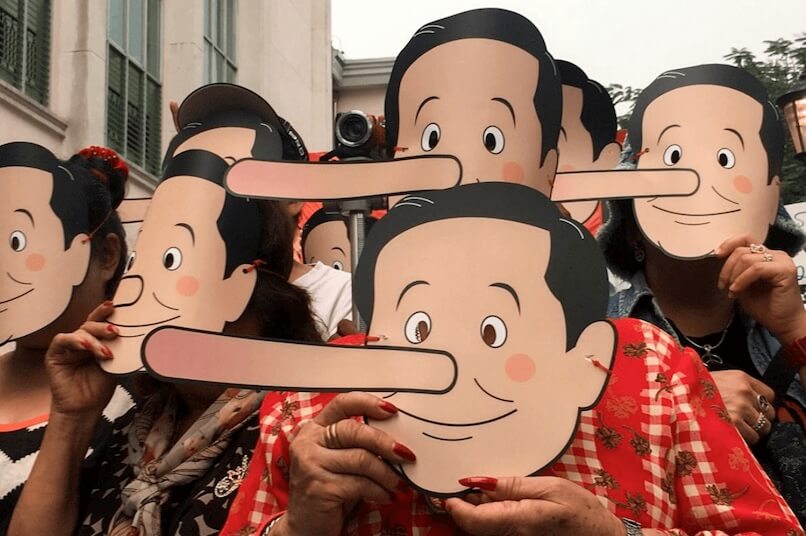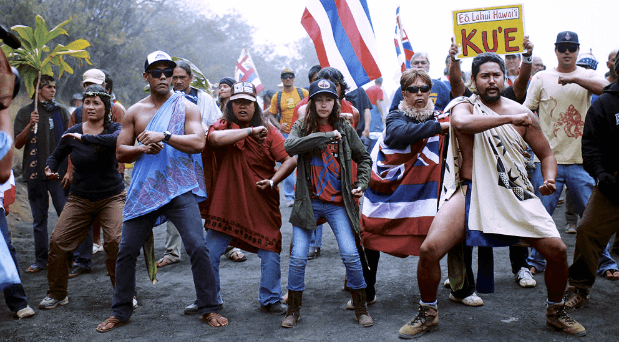
Weekly Report August 2nd

Cuba
Though Cuba, is one of the least wired nations in the Western Hemisphere, on Monday the communist-run nation took a step that may soon solve its disconnection after putting into place a new regulation that allows the creation of private wired and Wi-Fi internet networks in homes and businesses and allow the importation of routers and other networking equipment — though still giving the government’s iron-fisted monopoly over commercial internet access.
That wasn’t the only good news for Cubans: US Senator Patrick Leahy introduced the “Freedom for Americans to Travel to Cuba Act of 2019” that would lift the congressional ban on American travel to Cuba, which was signed in 1996 by Bill Clinton under the Helms-Burton Act. It is the only congressional law that prohibits Americans from visiting a country.
While Congress has sought to cease long-standing tensions, further ignited by President Trump, Cuban President Miguel Diaz-Canel blamed Washington D.C. and its Secretary of State as “ignorant of the history and principles of the Cuban Revolution.” Cuban officials have denounced Pompeo’s claim that Cuba controls the political and oil elite in Venezuela.

Nicaragua
On Wednesday, opposition leaders went back to the negotiating table but there was no one from the government to negotiate with. The Civic Alliance opposition group accused the Ortega administration of intransigence saying “the ability to re-establish (dialogue) depends on diplomatic efforts by the Organization of American States.” According to the Alliance, “the political, social and economic crisis continues to deteriorate and the civic path is the one chosen by the Nicaraguan people.” This week, the Nicaraguan government made a controversial move by granting citizenship to Mauricio Funes, ex-President of El Salvador and his family. Funes served as President of El Salvador from 2009 to 2014 has been in Nicaragua since 2016 seeking political asylum. He is wanted for allegations of embezzlement and illicit enrichment, diverting $351 million in public funds, which he denies. With Nicaraguan citizenship, he is now under the protection of the Nicaraguan constitution which explicitly prohibits extradition of Nicaraguan nationals.

North Korea
North Korea continued to fire missiles this week, further heightening tensions between Pyongyang and Seoul. North Korea stated that the missiles are in response to the continued U.S. military drills in the region, though Washington has not stopped the drills. The Trump administration has downplayed the missile launches and has voiced the desire for continued diplomatic talks with North Korean leader Kim Jong Un. North Korean Foreign Minister Ri Yong Ho cancelled plans to attend the ASEAN regional forum where U.S. Secretary of State Mike Pomepeo was hoping to meet with North Korean counterparts. As of now, there are no formal plans for talks between Pyongyang and Washington.

Myanmar
On Thursday, the Arakan Army released 52 villagers from holding in western Myanmar. The 52 prisoners, comprised of ethnic Khumi villagers, were detained over six months ago. The Arakan Army claimed the villagers were fleeing from a nearby fight, and had asked for help from the Arakan Army. Bystanders and fellow villagers deny this claim; spectators said that the soldiers arrived to the village and called on people to meet near the church. Upon arrival, the villagers were detained and sent to a border camp without consent. Alleged abductions have ravaged Myanmar for months, picking up recently in March. According to RFA, five people have been killed while in police or military custody since March of 2019.

United States
US oil prices collapsed Thursday after President Donald Trump fired another shot in the US-China trade war vowing to impose a 10% tariff on another $300 billion of US imports from China. The demand worried investors that a severe economic slowdown could eat into demand for oil and other commodities. The escalation also raises the risk that China will retaliate by imposing tariffs on US oil. The collapse coincided with the Federal Reserve lowering interest rates for the first time since the Great Recession. President Trump did not just attack foriegn trade-adversaries but American cities and congressmen. After a racist attack on Rep. Elijah Cummings and his majority-black district of Baltimore, President Trump racistly lambasted other liberal hubs like Los Angeles, San Francisco, and Chicago as having higher crime rate than Afghanistan. A campaign spokesman for the Trump Team remarked that as long as progressive Democrats maintain their current positions on immigration, taxes and health care, Trump can use them to his advantage as “socialist.” This did stop progressive Democrats on Tuesday and Wednesday night at the second presidential debate from betting on more radical reforms like medicare for all, slavery reperations, and impeachment. Regardless, an evident progressive-moderate rift further divided the party vis-a-vis 2016 Bernie Sanders contra Hilary Clinton.
(Un)Diplomatically, the United States formally let the historic Cold War pact expire by pulling out of the Intermediate-Range Nuclear Forces (INF) Treaty to develop its own new warheads after the Russians refused to destroy their new missiles, which NATO says violate the pact. Secondly, the US slapped sanctions on Iran’s Foreign Minister Mohammad Javad Zarif, the latest move by Washington in its “maximum pressure” campaign against Tehran. Zarif brushed off the sanctions on Twitter, saying the US move indicated Washington saw him as a “threat” was “childish.”

Cambodia
In mid-July, the US House of Representatives unanimously voted to pass the Cambodia Democracy Act to “encourage free and fair elections, the respect for human rights and political rights as well as to impose economic sanction and restrict visas for Hun Sen’s senior officials for their undermining democracy and violating human rights in Cambodia.” However, Cambodian officials have reacted negatively to the move, claiming that it threatens to cut ties with the two nations. With rising tensions, Cambodian officials have asked American diplomats to “pack up and leave” after the American embassy in Phnom Penh made a Facebook post highlighting the “one-year anniversary of deeply flawed national elections in Cambodia.”
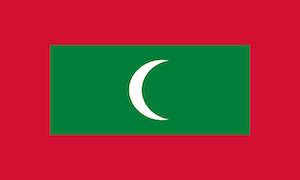
Maldives
The former Vice President of Maldives, Ahmed Adeeb, has been detained trying to enter India by sea this Thursday. Adeeb made news in 2015, becoming the country’s youngest Vice President, at 33 years old. Months later, he was arrested on charges of corruption and money laundering as well as plotting to kill the president. He was then jailed for 33 years in a trial widely recognized as unfair. Mid-July, Adeeb was freed from house imprisonment by appeal courts that claimed his imprisonment was part of former president Yameen’s effort to stifle opposition. Adeeb is a key witness in the trial on corruption charges of former president Yameen. Adeeb himself claims that he fled in fear for his life.

Zimbabwe
A year after former dictator Robert Mugabe was deposed, Zimbabwe’s economic and environmental situation is rapidly deteriorating. A water crisis has gripped the country, leaving many citizens to wait in long lines for minimal access to water. In Harare, Zimbabwe’s capital, more than half of the city’s 4.5 million residents only have access to running water once a week. This is due to the fact that Zimbabwe has experienced a drought that has left two out of four of Harare’s water reservoirs empty. The remaining water is under poor management and plagued by problems such as leakage and theft, leaving 45-60% of the remaining water to be lost. Relief from the shortage does not seem to be on the way, as residents daily lives are upended as they wait for water. The economic situation in the country is also in a dire state, with inflation reaching over 175%. There is widespread fear that the conditions could return to 2008, when the country was in a severe economic crisis where inflation was in the hundreds of millions. On top of the inflation, residents are facing daily blackouts and fuel shortages. The new president, Emmerson Mnangagwa, has done little to relieve the crisis and is bent on placing blame with political opponents. Many Zimbabweans are losing hope, while many political analysts are predicting a return to instability.
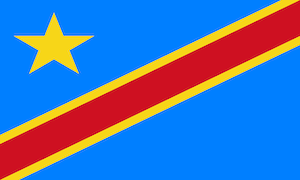
Democratic Republic of the Congo
The second ebola-related death has been reported in the border-city of Goma in the Democratic Republic of the Congo. Over 1,600 people in the DRC have died of ebola in the past year, though cases have been contained to more remote areas; the presence of ebola in Goma has led to fears that the disease will spread across the border to Rwanda. In response to the death in Goma, Rwanda has closed its borders near the Congolese city.

Venezuela
Carlos Vecchio, who represents opposition leader Juan Guaido, announced in a speech in Washington D.C. that talks will resume between Nicolas Maduro. Without giving details relating to the talks, Vecchio described Maduro as an “obstacle to peace.” The two sides held Nowegian-mediated talks for several days earlier this month in Barbados but nothing came from it. While both sides rhetorically have insisted for peace, Maduro is methodologically cracking on dissent. Later this week, news revealing Venezuela as a new arena of proxy geopolitics, after President Donald Trump said he may order a blockade of Venezuela on Thursday with the hopes of crippling Venezuela’s leadership. Meanwhile, reports revealing Russian oil ships sailing thousands of miles to sanction-stained Venezuela buying over one million Russian barrels of oil. In another twist, the aforementioned Vecchio said Chinese technicians are working with Venezuelan strongman Maduro to knock out internet access in the country.
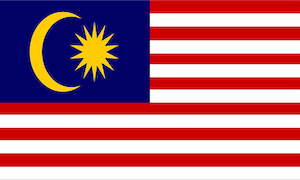
Malaysia
Pahang’s Sultan Abdullah Ri’ayatuddin, was installed as Malaysia’s 16th Malaysian King on Tuesday, July 30th in a ceremony steeped in royal customs and tradition. The installation came six months after the surprise abdication of his predecessor, Sultan Muhammad V of Kelantan. The 60-year-old ruler of the state of Pahang was crowned king for the next five years in a ceremony at the Istana Negara, the national palace in Kuala Lumpur. The power turnover is unique to Malaysia, which is a constitutional monarchy, whereby the national throne changes hands every five years between royal rulers of the country’s nine states.
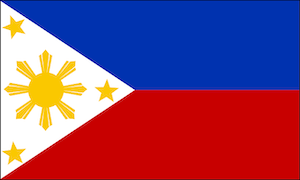
Philippines
The Philippines have “staged” a diplomatic protest against China after reports claim that more than 100 Chinese fishing vessels were spotted in recent days about a Philippine-administered island in the South China Sea. The country’s national security advisor recommended the filing of the protest against China. The Philippines and China (along with multiple other countries) have been competing for influence over the South China Sea, a resource-rich maritime area that has been economically vital to all countries of interest. In a statement on Tuesday, Defence Secretary Delfin Lorenzana accused the Chinese of bullying, citing recent actions in territories claimed by Beijing.
On July 30, Global Witness published a robust report calling the Philippines the “deadliest country in the world” for land and environmental defenders. The report outlines the repression and killings of environmental activists all over the country, According to their findings, Global Witness put the Philippines at the top of the list for total number of killings at 30 activists.
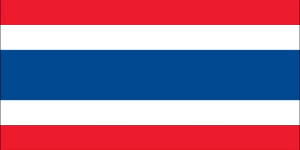
Thailand
At least four people were injured on Friday when several small bombs went off in the Thai capital Bangkok during the morning rush hour. The explosions sounded as the city hosted a regional security meeting of foreign ministers from the Association of Southeast Asian Nations (ASEAN), along with representatives from the United States, China and Russia. While the bombs were central, they were not close or related to the ASEAN. Thai Prime Minister Prayuth Chan-o-cha has already ordered an investigation into the several small explosions and no immediate claim of responsibility.

Vietnam
On August 5, the EU will sign a new defense agreement with Vietnam, which will be the first that the EU has with a Southeast Asian nation. Federica Mogherini, the EU’s chief diplomat, said that the agreement will be for “Vietnam’s participation in European military and civilian missions.” The EU will also sign a Framework Participation Agreement with Vietnam, which will make Vietnam a part of the EU’s crisis management operations as well as allowing it to contribute to operations and missions under the EU’s Common Security and Defense Policy. The EU sees many reasons to increase cooperation with Vietnam, in large part due to wanting to influence the nation to pressuring China on the issue of Chinese expansionism in the South China Sea. The EU also wants more leverage in Southeast Asian affairs, and sees Vietnam as the path to it. Vietnam is also joining the UN Security Council for the next two years, which will see the country working on international diplomacy with several EU member states.

Iran
The United States government announced new sanctions on Iranian Foreign Minister Mohammad Javad Zarif calling him the “regime’s primary spokesperson around the world.” In response, Mr. Zarif tweeted, “The US’ reason for designating me is that I am Iran’s ‘primary spokesperson around the world’ Is the truth really that painful? It has no effect on me or my family, as I have no property or interests outside of Iran. Thank you for considering me such a huge threat to your agenda.” Additionally, the US extended waivers allowing Russia, China and European countries to “continue civilian nuclear cooperation with Iran.” According to White House security advisor John Bolton, “the idea here is we are watching those nuclear activities very, very closely.”

Sudan
Talks between Sudan’s Transitional Military Council (TMC) and protest leaders have been cancelled in response to the shooting of peaceful student protestors. Rapid Support Forces (RSF) fired on children who were protesting food and water shortages, killing at least four people. The massacre has led to the closure of schools in the area and heightened tensions have led to continued protests in the nation. The recent events put into question the power-sharing deal signed by military and protest leaders in July.
It has been announced that the trial of former Sudanese leader Omar al-Bashir will begin on August 17th; al-Bashir is being tried on corruption charges. Despite external pressure from the African Union, it is unknown whether there will be trials held for those responsible for the shooting of student protestors.
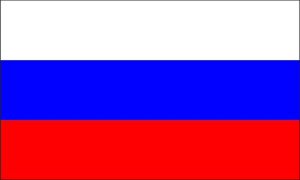
Russia
On Saturday in Moscow, an estimated ten thousand protesters took to the streets after election officials barred around 30 opposition-leaning candidates from running for the 45-seat Moscow-city legislature on the grounds they failed to garner enough signatures to qualify. The barred leaders assert they did gather the required signature count but were disqualified by election officials in the pocket of authoritarian President Vladmir Putin. Leading opposition leader and figurehead, Alexei Navalny, was present, hobnobbing and shaking protesters’ hands, and talking to the candidates who were not registered. While Russian opposition leaders tend to be factitious, demands for free and fair elections is one of the rare issues that unite the usually divided opposition.
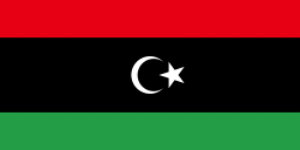
Libya
Libya’s Interior Minister Fathi Bashagha announced plans to shut down three of its biggest migration detention centres in Misrata, Tajoura and Khoms following criticism that migrants were being returned to Tajoura after it was hit by a deadly missile attack in July. In the wake of the “outrageous” attack,the UN’s Libya envoy Ghassan Salamé and top human rights official Michelle Bachelet said it could amount to a war crime. But the UN Security Council failed to condemn it after the US declined to endorse a joint statement, according to diplomats. While Renegade commander Khalifa Haftar’s forces appear to have made little progress as they resort to using more powerful weapons, resulting in more casualties. The UN envoy to Libya Ghassan Salame has also called for a truce on the Muslim holiday of Eid as the conflict deepens.

Hong Kong
For the third straight week, violent protests and clashes with police in Hong Kong have unfolded, capping off two months of rolling public demonstrations against China and Hong Kong leader Carrie Lam. While the protests are ongoing, on Monday, China offered its full support to Hong Kong’s embattled leader and its police force, and said violent protesters must be swiftly punished, in rare remarks by the government office that oversees policy towards the territory. It came days after a People’s Liberation Army spokesman hinted that military force could be used to bring to heel the anti-government demonstrations to an end. China’s rhetoric matched its rulesless and ruthless arrest of eight people, including a prominent pro-independence activist, on suspicion of having offensive weapons and explosives, ahead of a weekend of mass protests on Friday. Days earlier, forty-four Hong Kongers were arrested, detained, and later released without charges, including pro-democracy leader Johnson Yeung.
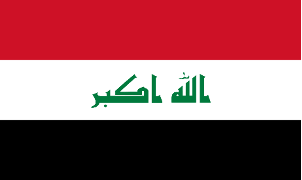
Iraq
The Iraqi government announced this week that around $10 million in aid for displaced Iraqis in northern Iraq’s Nineveh province was embezzled by its fugitive ex-governor. The country’s anti-corruption commission said that the funds, which were meant to help 1.6 million Iraqis currently living in displacement camps, were transferred to Kurdistan. Kurdistan is an autonomous region where the governor, Nawfel Akoub, is thought to be in hiding. Nineveh is the province where ISIS set up base in Iraq, forcing millions to flee from their homes. Public services in the province have not been reestablished, keeping many from their homes.
UN experts warned in a report released this week that ISIS is aiming for a resurgence in Iraq and Syria. The report says that ISIS leaders are consolidating power to create a resurgence of the group in the region. ISIS leader Abu Bakr al Baghdadi, along with most of the group’s leadership, is now based in Iraq following the fall of their “caliphate.” The experts warn that as the group continues to gain strength, terrorists attacks like the ISIS-inspired Easter Day Bombings in Sri Lanka can become more common before the end of 2019.
Other News:
Bono, Nigeria: In a suspected revenge attack, terrorist group Boko Haram have been killed at least 65 people after opening fire on a funeral in Nigeria’s north-eastern state of Borno. Gunmen arrived on motorcycles and in vans at the village near the state capital, Maiduguri, on Saturday. reportedly killing mourners straight away, while others died trying to chase off the attackers. Local government official Muhammed Bulama said the latest attack was in revenge for the killing of 11 Boko Haram fighters by the villagers two weeks ago; however, Al Jazeera’s Ahmed Idris said that while there has been no claim of responsibility, the attack bore the hallmark of Boko Haram.
Brazil: Brazil, a country with the third country largest carceral system in the world, saw over 57 people were killed in a prison riot in Brazil on Monday. Rival gangs battled for five hours, officials say, when gang members from one prison block invaded another part of Altamira jail in Pará state. Sixteen of the dead were decapitated and the remainder suffocated after part of the prison was set on fire. Two prison officers who were taken hostage have since been freed. Members of the Comando Classe A (CCA) gang set fire to a cell where rival gang members from Comando Vermelho (Red Command) were kept, the Pará state government said in a statement.
Hawaii: Starting July 15, a protest on the big island near Maunakea quickly gained traction within weeks. Starting with a handful of native-Hawaiin elders who were blocking the construction of the Thirty Meter Telescope (TMT) project, the crowd grew to 2,000, even drawing in celebrities such as Bruno Mars, Jason Mamoa, and the Rock. When asked about their thoughts, many leaders of the protest claim they are not against science or the construction of the project. However, they are opposed to its construction on historical and culturally-important land. On Tuesday, Gov. David Ige rescinded an emergency proclamation that was issued to help remove demonstrators. However, he has also extended the permit for the construction of the telescope, reminding the people of his commitment to make this project work peacefully.
